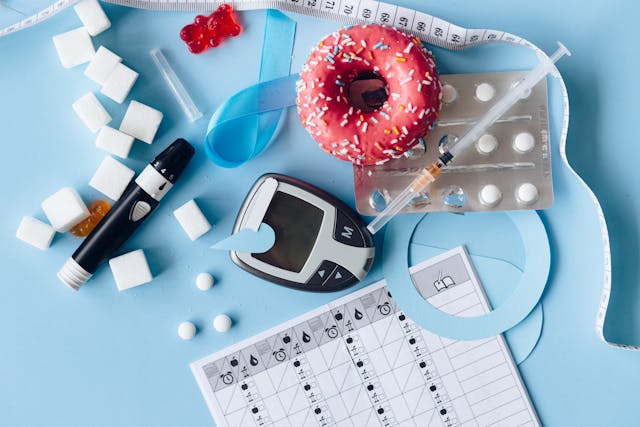A recent study by researchers from Mass General Brigham has shown that a remote team dedicated to identifying, educating, and prescribing therapy can significantly enhance adherence to guideline-directed medical therapy (GDMT) in patients with type 2 diabetes who are also at high risk for cardiovascular and kidney complications. The study found that patients who received education concurrently with medication management had a higher uptake of medications and started treatment earlier than those who were educated about two months before beginning medication management. These findings were presented at the 2024 American College of Cardiology’s Annual Scientific Session and published in Circulation.
Dr. Alexander J. Blood, MD, MSc, the corresponding author who presented these findings, emphasized the effectiveness of simultaneous education and treatment. Dr Blood, who is an attending physician in the Division of Cardiovascular Medicine and the Heart and Vascular Center at Brigham and Women’s Hospital—part of the founding network of the Mass General Brigham healthcare system—advocated for initiating treatment promptly when a patient shows readiness to invest in their health, suggesting that providers should capitalize on the patient’s immediate interest.
Type 2 diabetes is a prevalent condition in the United States that heightens the risk of severe cardiovascular and kidney events. Despite the potential benefits of medications like SGLT2 inhibitors and GLP-1 receptor agonists in improving outcomes for these patients, widespread adoption remains limited. Clinical trials and societal recommendations have not sufficiently translated into broad clinical practice.
The study involved a parallel, randomized, open-label clinical trial funded by the Novo Nordisk Foundation. It enrolled 200 adult patients with type 2 diabetes at elevated risk for cardiac and kidney issues at Mass General Brigham. Participants were randomly assigned to either an “education-first” group, which received two months of dedicated educational content through patient-centric videos on disease management and medication before starting treatment, or a “simultaneous” group, which received the same academic resources concurrently with treatment initiation.
Both groups were managed using a research and clinical care management platform developed by the Accelerator for Clinical Transformation at Brigham and Women’s Hospital and Mass General Brigham. This platform supported coordinated care delivery involving patient navigators, pharmacists, nurse practitioners, and physicians, thus facilitating comprehensive patient engagement and streamlined communication. This system is integral to Mass General Brigham’s efforts to transform healthcare delivery. It allows patients to access services and monitor their health from home, which is particularly vital when hospitals are often over capacity.
Over a six-month follow-up period or one-month post-medication initiation, if longer, results showed notable benefits like weight loss and reduced blood glucose levels in both groups. However, the simultaneous education group demonstrated superior medication retention rates, with 60 per cent adherence compared to 44 per cent in the education-first group. Interestingly, the education-first group’s engagement with the educational platform was lower than initially expected.
The findings challenge the assumption that a pre-treatment education period alone can resolve medication adherence issues and highlight the potential of remote, team-based care delivery. This approach appears promising for facilitating the adoption of new therapies, reducing disparities in care quality, and improving health outcomes across diverse patient groups. The flexibility of remote treatment models can broaden access to care, particularly benefiting underserved communities and individuals with demanding schedules. Additionally, including a patient navigation team enhances ongoing communication between patients and providers, ensuring personalized support essential for sustained engagement in healthcare.
Dr. Benjamin M. Scirica, MD, MPH, the principal investigator of the DRIVE study and director of the Accelerator for Clinical Transformation, expressed strong belief in the impact of remote care programs that utilize non-licensed navigators, clinical pharmacists and team-based care in conjunction with a dedicated care delivery platform. He emphasized that such programs improve operational efficiencies and communication and significantly contribute to enhancing access, elevating patient outcomes, reducing physician burden, and promoting the appropriate use of guideline-recommended medications.
More information: Alexander J. Blood et al, Randomized Evaluation of a Remote Management Program to Improve Guideline-directed Medical Therapy: The Diabetes Remote Intervention to Improve Use of Evidence-based Medications (DRIVE) Trial, Circulation. DOI: 10.1161/CIRCULATIONAHA.124.069494
Journal information: Circulation Provided by Brigham and Women’s Hospital








